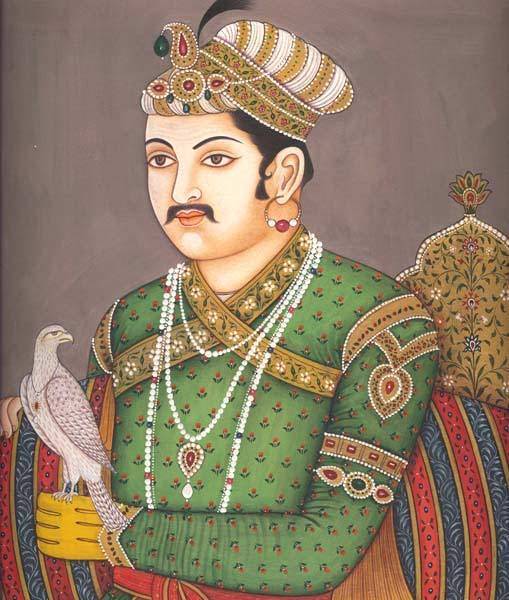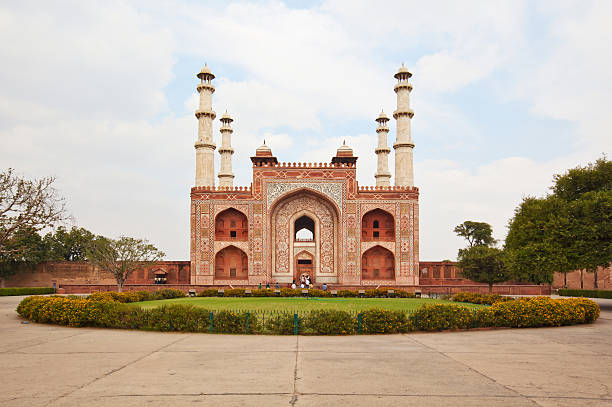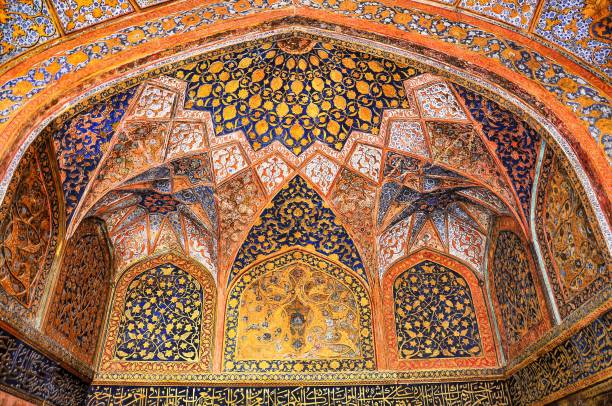Akbar Biography
Table of Contents

Jalaluddin Muhammad Akbar or Akbar the good was the son of Nasiruddin Humayun. Akbar was born on 15 October 1542 at Amarkot, a Rajput fort in Sindh. When Akbar was born, Humayun was thrown out of the country, so Akbar was raised in Afghanistan by his uncle Askari and his wife. Akbar learned to hunt and fight in his youth, but Akbar couldn’t read and write. Akbar was a well known ruler along side being an expert in every field. When Akbar’s father Humayun died in an accident, Akbar assumed the throne on 14 February 1556. At that point Akbar was only 13 years old and it had been youth of his life, at that point Akbar was under an able guide of his father’s minister Bairam Khan.
He reorganized the tax system, and established relations with the countries of the West by dividing his army. He had a lot of passion for art and culture, so he got books written in many languages and this was the reason that he made Agra Fort, Fatehpur Sikri, Humayun’s Tomb, Buland Darwaza, Allahabad Fort, Lahore Fort as well as his own tomb in Sikandra during his reign. and created many other architectural works of art.
After assuming the throne, Akbar decided to destroy the facility of Sikandar Shah Suri, son of Sher Shah Suri of Punjab, and left the town of Delhi under Tardi Beg Khan. Akbar succeeded during this task and Sikandar Shah left his area. But in Delhi, seizing the chance , Hemu, a Hindu ruler, attacked Delhi and Tardi Beg Khan fled the town . Akbar met Hemu’s army and defeated Hemu within the second battle of Panipat. Akbar was a really efficient ruler and tried to incorporate the entire of India under his rule. For this, Akbar adopted many strategies, in some places Akbar also used his military powers, while in other places Akbar used his administrative skills. Akbar established matrimonial relations in many Hindu kingdoms. After marriage, Akbar didn’t force his Hindu wives to convert to Islam, but instead encouraged them to practice their religion. Akbar respected all the religions of the planet . consistent with Akbar, all religions guide us, God is one. Akbar’s secular approach resulted within the formation of a replacement religion called Din-i-Ilahi, Faith of God. Akbar built a building called Ibadat Khana (House of Worship), where Akbar promoted religious debate.
There were nine Navratnas in Akbar’s court, including Abul Fazl, Faizi, Tansen, Birbal, Raja Todarmal, Raja Mansingh, Abdul Rahim Khan-i-Khana, Fakir Ajion-Din and Mulla do Pyaza. The last years of Akbar’s reign weren’t peaceful, as Akbar’s son Salim, later referred to as Emperor Jahangir, rebelled against Akbar. Akbar died in Agra and therefore the body was buried at Sikandra, where Akbar’s magnificent tomb remains located.


Facts and information to know about Akbar
| Full Name | Abul-Fatah Jalal-ud-Din Mohammad Akbar |
| is known as | Akbar the Great |
| Reign | 11 February 1556 to 27 October 1605 |
| Born | 14 October 1542 (Amarkot Sindh) |
| Died | 27 October 1605 (Fatehpur Sikri, Agra) |
| Burial | Sikandra, Agra |
| Religion | Islam, Din-e Ilahi |
| Dynasty Mughal | Mughal Dynasty |
| Coronation | 14 February 1556 |
| Ancestor | Humayun |
| successor | Jahangir |
| State Patron | Bairam Khan (1556–1561) |
| wife | Ruqaiya Sultan Begum |
| Wives Wife | Heer Kunwari, Heera Kunwari, Harka Bai, Jodha Bai, Salima Sultan Begum |
| father | Humayun |
| mother | Hamida Banu Begum |
| Grand father | Babar |
| Grand mother | Meham Begum |
| Children | Jahangir, Daniyal, Sultan Murad Mirza, Havarsh, Hussain |
| Marriage | In November 1551, Akbar married his cousin, Ruqaiya Sultan Begum, in Kabul. Rukaiya was the chief wife of Akbar. |
| young emperor | After the death of the young emperor Humayun, 13-year-old Akbar was crowned at Kalanaur in Punjab by Bairam Khan. Until Akbar was able to rule independently, Bairam Khan decided in the affairs of the state. |
| Reclaiming Delhi | On 5 November 1556, Hemu and Sur’s forces were defeated by Akbar’s forces, which had led Bairam Khan in the Second Battle of Panipat. |
| Removal of Bairam Khan | Akbar, on the advice of his late mother, Maham Anga, removed his relative Bairam Khan from office in the year 1560. |
| Expansion into Central India In the | year 1564, the Kingdom of Gondwana was conquered by Mughal forces. |
| Battle of Haldighati | In the year 1576, the Mughals defeated Pratap Singh, son and successor of Udai Singh in the Battle of Haldighati. |
| Conquest of Balochistan | The Mughal Empire had also conquered Balochistan. |
| Safavid and Kandahar | In the year 1558, Tehmasap I, the Safavid Emperor, overthrew Kandahar and defeated this Mughal ruler. |
| Tax Assessment | Akbar adopted the annual assessment of tax as a right, but it failed in the year 1580. After this he started the system called Dahsala. Akbar was probably the first emperor to introduce a target-based remuneration system for his revenue officials. In this, the revenue officers had to get only three-fourth salary and the remaining amount had to be paid only when the revenue targets were set. |
| Capital | In the year 1599, Agra was made the capital of the state. |
| Coinage | The coins minted by Akbar were round and square and had dots, flower motifs and chaupatiya perforations on their sides. They were also designed in the ‘arch’ shape. |
| A patron of scholars | Akbar patronized Muslim scholars such as Tahir Muhammad Thatwi and Mir Ahmad Nasrallah Thatvi. |
| Din-i-Ilahi | Akbar propounded a homogeneous religion Din-i-Ilahi in 1582 AD, but his idea failed prematurely. |
| Relations with Hindus | Akbar declared that no death sentence would be given to Hindus who did not convert. Akbar celebrated the festival of Diwali. Through the blessings of the brahmins, they were allowed to wear kalava on their wrists. Cow meat was asked to be given up and they banned the sale of meat for a few days. |
| Mentioned in literature | the books Ain-i-Akbari and Akbarnama by Abul Fazl and Sheikhzada Rashidi and Sheikh Ahmed Sirhindi by Badayuni. Akbarnama contains biography of Akbar in Persian |
| He died | 27 October 1605. His burial chamber is built as a mausoleum at Sikandra, Agra. |
| Movies & Television | Jodha Akbar, Mughal-e-Azam, Akbar-Birbal (TV Serial), Akbar Mahan (TV Serial), Jodha Akbar (TV Serial) |
| The novel | Enchantress of Florence by Salman Rushdie (2008) |
| Video Game | Civilization 4: Beyond the Sword, Age of Empires III: The Asian Dynasty |
